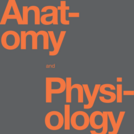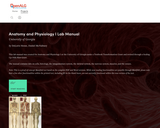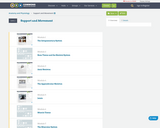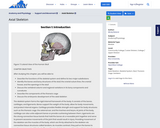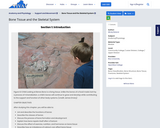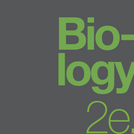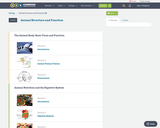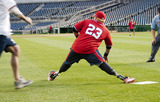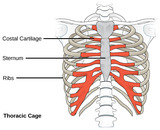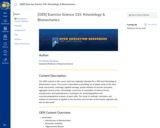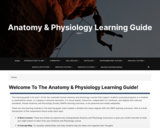
This learning guide is for part I of the two-semester human anatomy and physiology courses that support students pursuing programs in a medical or paramedical career, or a degree in physical education. It is cloud-based, interactive, independent of a textbook, and aligned with national standards, Human Anatomy and Physiology Society (HAPS) learning outcomes, to be perennial and widely adaptable.
There are nine learning modules in the learning guide. Each module is divided into topics aligned with the HAPS learning outcomes. Here is a brief introduction of the components found under each topic.
A Short Lecture: These are written by experienced undergraduate Anatomy and Physiology instructors to give you a brief overview of what you might expect to learn from your Anatomy and Physiology course.
A Concept Map: To visualize relationships and help students dig into ideas and organize their thoughts.
Key Points: A very quick overview of important concepts for the section.
Muddiest Points: Points that have caused confusion for students.
Interactive Exercises: These exercises can help students check their learning.
Students can use the learning guide as the following:
An overview before starting a topic in an Anatomy and Physiology Course
A guide to correct anatomical terminology that underlies the concepts of the course work
A place to review confusing concepts in regular course work
A place to find extra resources for study of concepts that are either understood or are still murky.
The development of this human anatomy and physiology learning guide is made possible with the support of the Virtual Library of Virginia (VIVA) Open Course Grants. It is created by a group of experienced faculty members at Northern Virginia Community College and reviewed by several members of the Human Anatomy and Physiology faculty at George Mason University.
- Subject:
- Anatomy/Physiology
- Life Science
- Material Type:
- Homework/Assignment
- Student Guide
- Teaching/Learning Strategy
- Author:
- NOVA Online
- Rong Zhu
- Date Added:
- 03/23/2023
